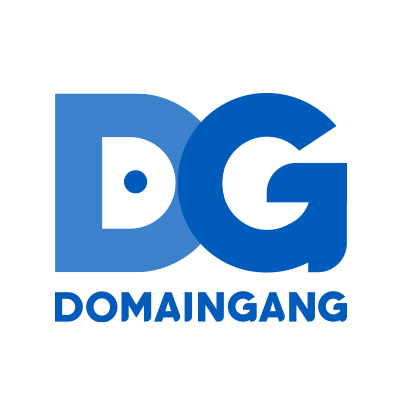YOUR AD HERE
It took the better part of 20 years for the typo-domain, Equafix.com, to be surrendered to the squatted brand’s owners. The domain name has been parked with zero click landers, presumably generating a steady PPC revenue stream.
Equifax Inc., filed a UDRP to get the domain from the Respondent, whose information is hidden behind WHOIS privacy. The WIPO panelist had an easy task:
Final decision: Grant the transfer of Equafix.com to the Complainant.
ARBITRATION AND MEDIATION CENTER
ADMINISTRATIVE PANEL DECISION
Equifax Inc. v. Domain Administrator, Fundacion Privacy Services LTD
Case No. D2024-4321
1. The Parties
The Complainant is Equifax Inc., United States of America (“United States”), represented by The GigaLaw Firm, Douglas M. Isenberg, Attorney at Law, LLC, United States.
The Respondent is Domain Administrator, Fundacion Privacy Services LTD, Panama.
2. The Domain Name and Registrar
The disputed domain name equafix.com is registered with Media Elite Holdings Limited (the “Registrar”).
3. Procedural History
The Complaint was filed with the WIPO Arbitration and Mediation Center (the “Center”) on October 21, 2024. On October 21, 2024, the Center transmitted by email to the Registrar a request for registrar verification in connection with the disputed domain name. On October 21, 2024, the Registrar transmitted by email to the Center its verification response confirming that the Respondent is listed as the registrant and providing the contact details.
The Center verified that the Complaint satisfied the formal requirements of the Uniform Domain Name Dispute Resolution Policy (the “Policy” or “UDRP”), the Rules for Uniform Domain Name Dispute Resolution Policy (the “Rules”), and the WIPO Supplemental Rules for Uniform Domain Name Dispute Resolution Policy (the “Supplemental Rules”).
In accordance with the Rules, paragraphs 2 and 4, the Center formally notified the Respondent of the Complaint, and the proceedings commenced on October 24, 2024. In accordance with the Rules, paragraph 5, the due date for Response was November 13, 2024. The Respondent did not submit any response. Accordingly, the Center notified the Respondent’s default on November 14, 2024.
The Center appointed Andrea Jaeger-Lenz as the sole panelist in this matter on November 20, 2024. The Panel finds that it was properly constituted. The Panel has submitted the Statement of Acceptance and Declaration of Impartiality and Independence, as required by the Center to ensure compliance with the Rules, paragraph 7.
4. Factual Background
The Complainant is a financial services company which was incorporated under the laws of the State of Georgia, United States, in 1913 and is headquartered in Atlanta, Georgia. It employs approximately 11,000 people and operates in four global regions: North America (United States and Canada), Asia Pacific (Australia, New Zealand, and India), Europe (United Kingdom, Ireland, Spain, and Portugal) and Latin America (Argentina, Brazil, Chile, Costa Rica, Dominican Republic, Ecuador, El Salvador, Honduras, Mexico, Paraguay, Peru and Uruguay).
The Complainant owns, amongst others, the following trademarks (Annexes 11 and 12 of the Complaint):
– United States trademark registration no. 1027544 EQUIFAX (word), registered on December 16, 1975, for services in class 36;
– United States trademark registration no. 1045574 EQUIFAX (word), registered on August 3, 1976, for services in class 35;
– Panama trademark registration no. 286416 EQUIFAX (word), registered on February 11, 2021, for services in classes 35, 36 and 42.
The Complainant is the registrant of the domain name equifax.com, which was created on February 21, 1995, and resolves to its primary website (Annexes 5 and 6 of the Complaint).
The disputed domain name equafix.com was registered on January 7, 2004 (Annex 1 of the Complaint). It resolves to a website redirecting visitors to various offerings, encouraging Internet users to download files or pay-per-click (“PPC”) pages. Also, mail exchange (“MX”) records have been created to the disputed domain name (Annex 7, 8, 9, and 10 of the Complaint).
5. Parties’ Contentions
A. Complainant
The Complainant contends that it has satisfied each of the elements required under the Policy for a transfer of the disputed domain name.
The Complainant contends that it owns trademark registrations for EQUIFAX, which was considered “well-known” and reputed by previous panels. The Complainant claims that the disputed domain name is confusingly similar to the Complainant’s EQUIFAX trademark. The EQUIFAX trademark is contained in its entirety therein, simply with transposed letters “i” and “a”. According to the Complainant, this is to be considered a common, obvious, or intentional misspelling of the trademark.
On the second element, the Complainant claims that the Respondent has no rights or legitimate interests in the disputed domain name. According to the Complainant, it has never authorized or otherwise given consent to the Respondent to register or use the EQUIFAX trademark in any manner. The Respondent has failed to create a bona fide offering of goods or services under the Policy and cannot demonstrate rights or legitimate interests under the Policy, as the Respondent used the website to redirect visitors to PPC or monetized parking pages associated with phishing activities. According to the Complainant, the Respondent has never been commonly known by the disputed domain name and has never acquired any trademark or service mark rights in the disputed domain name. The Respondent’s actions are clearly commercial.
On the third element, the Complainant submits that the disputed domain name should be considered as having been registered and used in bad faith by the Respondent. As to registration in bad faith, the Complainant claims that its EQUIFAX trademarks are famous and/or widely known, and that the Complainant had established rights in these trademarks well before the registration of the disputed domain name. Thus, according to the Complainant, it is implausible that the Respondent was unaware of the Complainant when it registered the disputed domain name. The Complainant claims that the disputed domain name is so obviously connected with the Complainant, that the Respondent’s actions suggest opportunistic bad faith as the Respondent must have been aware of the Complainant and its trademarks and sought to obtain a commercial benefit by attracting Internet users based on that confusion. As to use in bad faith, the Responded argues that the website is used to redirect visitors to PPC or monetized parking pages associated with phishing activities, which is to be evaluated as use in bad faith pursuant to paragraph 4(b)(iii) and (iv) of the Policy. According to the Complainant, the fact that the Respondent has established MX records for the disputed domain name , which enables it to use the disputed domain name to send and receive email should be considered further evidence of bad faith because it gives rise to the strong possibility that the Respondent intended or intends to use the disputed domain name to send emails as part of a fraudulent scheme. The Complainant claims that another indication of bad faith is to be seen in the fact that the disputed domain name was registered 29 years after the oldest existing registrations for the EQUIFAX trademark were first used and registered.
B. Respondent
The Respondent did not reply to the Complainant’s contentions.
6. Discussion and Findings
A. Procedural issues
The Panel notes that there is a delay of 20 years between the registration of the disputed domain name and filing of the Complaint.
On this, the Panel notes that UDRP panels have widely recognized that mere delay between the registration of a domain name and the filing of a complaint neither bars a complainant from filing such case, nor from potentially prevailing on the merits. The UDRP remedy is injunctive rather than compensatory, and that a principal concern is to halt ongoing or avoid future abuse/damage, not to provide equitable relief. Also trademark owners cannot reasonably be expected to permanently monitor for every instance of potential trademark abuse, nor to instantaneously enforce each such instance they may become aware of, particularly when cybersquatters face almost no (financial or practical) barriers to undertaking (multiple) domain name registrations. Panels have however noted that in specific cases, certain delays in filing a UDRP complaint may make it more difficult for a complainant to establish its case on the merits, particularly where the respondent can show detrimental reliance on the delay. WIPO Overview of WIPO Panel Views on Selected UDRP Questions, Third Edition (“WIPO Overview 3.0”), section 4.17.
The Panel agrees with this view and notes that the Respondent has not demonstrated any detrimental reliance on the delay, but, rather, has not filed any response at all. Therefore, in the present case, the delay of 20 years before bringing the Complaint does not bar the Complainant from prevailing on the merits.
B. Identical or Confusingly Similar
It is well accepted that the first element functions primarily as a standing requirement. The standing (or threshold) test for confusing similarity involves a reasoned but relatively straightforward comparison between the Complainant’s trademark and the disputed domain name. WIPO Overview 3.0, section 1.7.
The Complainant has shown rights in respect of a trademark or service mark for the purposes of the Policy. WIPO Overview 3.0, section 1.2.1. In particular, it has shown rights in the EQUIFAX trademark.
The Panel finds the mark is recognizable within the disputed domain name. Accordingly, the disputed domain name is confusingly similar to the mark for the purposes of the Policy. WIPO Overview 3.0, section 1.7. In light of the likelihood to mistake the Complainant’s trademark or domain name as equafix instead of equifax, the inversion of the two letters “i” and “a” in the disputed domain name equafix.com can be considered a case of a misspelling. WIPO Overview 3.0, section 1.9.
The Panel finds the first element of the Policy has been established.
C. Rights or Legitimate Interests
Paragraph 4(c) of the Policy provides a list of circumstances in which the Respondent may demonstrate rights or legitimate interests in a disputed domain name.
Although the overall burden of proof in UDRP proceedings is on the complainant, panels have recognized that proving a respondent lacks rights or legitimate interests in a domain name may result in the difficult task of “proving a negative”, requiring information that is often primarily within the knowledge or control of the respondent. As such, where a complainant makes out a prima facie case that the respondent lacks rights or legitimate interests, the burden of production on this element shifts to the respondent to come forward with relevant evidence demonstrating rights or legitimate interests in the domain name (although the burden of proof always remains on the complainant). If the respondent fails to come forward with such relevant evidence, the complainant is deemed to have satisfied the second element. WIPO Overview 3.0, section 2.1.
Having reviewed the available record, the Panel finds the Complainant has established a prima facie case that the Respondent lacks rights or legitimate interests in the disputed domain name. The Respondent has not rebutted the Complainant’s prima facie showing and has not come forward with any relevant evidence demonstrating rights or legitimate interests in the disputed domain name such as those enumerated in the Policy or otherwise.
Based on the available record, there are no rights or legitimate interests to the disputed domain name in favor of the Respondent, paragraph 4(c) of the Policy: The demonstrated use of the disputed domain name cannot be associated with a bona fide offering of goods or services (redirection of Internet users to PPC websites or monetized parking pages or the distribution of malware). The Respondent is also not commonly known by the domain name and the Panel fails to recognize any legitimate noncommercial or fair use.
Panels have held that the use of a domain name for illegal activity (here distributing malware or other types of fraud) can never confer rights or legitimate interests on a respondent. WIPO Overview 3.0, section 2.13.1. Moreover, given the typosquatting nature of the disputed domain name, it is clear that the Respondent sought to capitalize on misled Internet users expecting to find the Complainant at the inherently misleading disputed domain name. Instead, said Internet users are often directed to PPC links likely deriving the Respondent with click-through revenue and redirecting Internet users to competitors of the Complainant or other third party sites, none of which confers upon the Respondent rights or legitimate interests.
The website to which the disputed domain name has been shown to resolve to seems to redirect Internet users to PPC websites, monetized parking pages or to websites that can be associated with phishing scams or the distribution of malware. This is suggestive of a lack of rights or legitimate interests.
The Panel finds the second element of the Policy has been established.
D. Registered and Used in Bad Faith
The Panel notes that, for the purposes of paragraph 4(a)(iii) of the Policy, paragraph 4(b) of the Policy establishes circumstances, in particular, but without limitation, that, if found by the Panel to be present, shall be evidence of the registration and use of a domain name in bad faith.
In the present case, the Panel notes that according to these standards, the Respondent has registered and used the disputed domain name in bad faith.
Without being limited to this, the Panel finds that the disputed domain name fulfils the circumstances of paragraph 4(b)(iv) of the Policy. The disputed domain name constitutes a common misspelling of the Complainant’s EQUIFAX trademarks, which acquired a widespread reputation through their use by the Complainant for financial services. The Panel is of the opinion that the disputed domain name was chosen by the Respondent to profit from the probability that Internet users misspell the Complainant’s domain name consisting of the Complainant’s trademark by accidentally inverting the two letters “i” and “a”. The websites to which the disputed domain name redirects indicate that the Respondent is using the disputed domain name to make commercial gain through illegal means. Panels have held that the use of a domain name for illegal activity (here, distributing malware or other types of fraud) constitutes bad faith. Complainant for financial services. The Panel is of the opinion that the disputed domain name was chosen by the Respondent to profit from the probability that Internet users misspell the Complainant’s domain name consisting of the Complainant’s trademark by accidentally inverting the two letters “i” and “a”. The websites to which the disputed domain name redirects indicate that the Respondent is using the disputed domain name to make commercial gain through illegal means. Panels have held that the use of a domain name for illegal activity (here, distributing malware or other types of fraud) constitutes bad faith. Complainant for financial services. The Panel is of the opinion that the disputed domain name was chosen by the Respondent to profit from the probability that Internet users misspell the Complainant’s domain name consisting of the Complainant’s trademark by accidentally inverting the two letters “i” and “a”. The websites to which the disputed domain name redirects indicate that the Respondent is using the disputed domain name to make commercial gain through illegal means. Panels have held that the use of a domain name for illegal activity (here, distributing malware or other types of fraud) constitutes bad faith. Complainant for financial services. The Panel is of the opinion that the disputed domain name was chosen by the Respondent to profit from the probability that Internet users misspell the Complainant’s domain name consisting of the Complainant’s trademark by accidentally inverting the two letters “i” and “a”. The websites to which the disputed domain name redirects indicate that the Respondent is using the disputed domain name to make commercial gain through illegal means. Panels have held that the use of a domain name for illegal activity (here, distributing malware or other types of fraud) constitutes bad faith.
The Panel finds that the Complainant has established the third element of the Policy.
7. Decision
For the foregoing reasons, in accordance with paragraphs 4(i) of the Policy and 15 of the Rules, the Panel orders that the disputed domain name equafix.com be transferred to the Complainant.
/Andrea Jaeger-Lenz/
Andrea Jaeger-Lenz
Sole Panelist
Date: December 3, 2024
Copyright © 2024 DomainGang.com · All Rights Reserved.
 2 weeks ago
3
2 weeks ago
3







 English (US) ·
English (US) ·